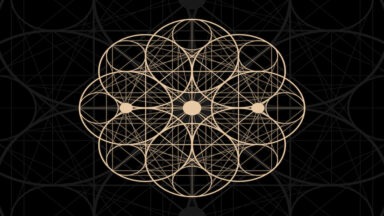The 3 Pillars of Life: A Good Night’s Sleep

“There are three supports (pillars) of life. They are food, sleep and observance of brahmacharya. Being supported by these the body is endowed with strength, complexion and growth and this continues up till the full span of life provided a person does not indulge in regimens detrimental to health.”
Caraka Samhita
Previously, I wrote about the first pillar of life and spoke to the importance of discovering the foods that are right for you and how to maintain your digestive fire in order to absorb the prana (life energy) and useful nutrients from your food. If you didn’t read the previous article, you might go back and review that before jumping into part two.
For this article, I will take you into the second pillar of life, which is sleep! Sleep is an essential part of life and has a strong influence on your physical and mental health and ultimately helps you age more gracefully. Since everyone is unique, you will all need different amounts of sleep in order to thrive, so please note that what I am offering is general support based on my experience as a nutritionist and Ayurveda Health Educator.
When sleep gets compromised due to improper diet, heat, young children, full moons, or stress, it can make everything in life feel like an uphill battle. Sleep is so important that missing even a single night of sleep can create an adverse effect on your immune system, increase your blood pressure, make it more challenging to deal with “normal” daily stress, decrease your motor skills, disrupt your appetite-depressing hormones and affect your ability to relax at night. Can you see why it is one of life’s three pillars? Basically, without sleep we quickly fall apart!
After teaching several yoga classes this week, I had numerous students mention that they were currently struggling with insomnia. In Ayurveda we look at insomnia as vata dosha (air + space imbalance). It’s not uncommon to see more insomnia in the fall as it is also considered a vata time where the air outside may be getting more active, cool, and/or dry, and more space opens in nature as the leave all fall from the trees. The new space in seasonal transition can create a surge of excess upward moving energy in a vata imbalanced person and can contribute to someone experiencing insomnia.
If you or someone you know is struggling with sleep imbalances, here are a few general suggestions that may reduce the vata condition and help restore your sense of well-being. For a more individualized version of this vata-reducing program, considering booking a private with me or your local Ayurvedic practitioner.
Vata-Reducing Routine to Decrease Insomnia
- Avoid any caffeine after 10:00 a.m. or all together until your sleep is back to normal.
- Eat your largest meal in the afternoon and eat a bowl of warm broth-based soup for dinner. It’s best if your bowl in no larger than your two palms put together and is free of spicy chili peppers or garlic, both of which are considered rajasic (stimulating).
- Avoid alcohol late in the evening. If you are going to drink alcohol, it is best to do it around happy hour time with plenty of room temperature water to help you stay hydrated and clear-headed before bed.
- Establish a healthy, warm whole foods diet for a couple of weeks, reducing all processed foods. Heated foods are an important part of a vata-reducing diet, so until your sleep pattern is back to normal, considering warming each meal and being very generous with your oils like ghee, coconut, sesame, and safflower when cooking and olive oil or flax seed when your food is done being cooked.
- Skip dessert as sugar can also be stimulating and affect your ability to drop deep into sleep.
- Exercise daily. I recommend forms of movement that get your heart rate up for 20 minutes each day and some yoga poses that emphasis forward bends, squats, and twists to encourage energy (prana) to move away from the head.
- Evening routine: Keep your computer turned off, especially one hour before bed.
- Practice moderation with electricity and embrace candlelight in your home during the evening to help slow you down.
- Treat yourself to a warm oil massage before an evening shower or bath. I recommend raw organic sesame oil or a vata blend from your favorite store that sells Ayurvedic products. Be sure to give your focused attention to rubbing the oil into your skin! Your nervous system is close to the skin so when you rub your limbs and torso with warm oil, it begins to calm the nervous system, which is essential for good sleep. A follow-up warm shower or bath will help the skin absorb the oil. Avoid washing off the oil with soap. Lastly, if you take baths at night, be sure to avoid super hot bath water or soaking too long as too much heat can be stimulating.
- There are so many herbs out there that have can have a positive effect on your sleep, the most common being chamomile, valerian, skullcap, and ashwagandha. I highly recommend taking one of them as a tea or in the tincture form before bedtime. Also, you could try abhyanga, an Ayurvedic sleep aid massage oil.
- Drink a warm cup of cow’s milk (non-homogenized vat pasteurized, chemical/antibiotic/hormone-free) or almond milk with spices before bed. Milk has special peptides and proteins that activate the brain’s receptors related to deep sleep cycles.
- For a couple of weeks, see if you can establish a sleep, exercise, eat, work, and then unwind routine that matches the natural rhythm of the day. For example, going to bed by 10:00 pm in the fall, waking up around 6:00 am, meditation followed by some yoga, breakfast, work, hydrate, lunch, hydrate, work or creative time, evening exercise outside, soup for dinner, oil massage before shower, and then read or write before bed.
Consider what might be at the root of your sleep disturbance and spend time getting the support you need to unwind from the stressor.
What Are Starseeds and How to Know If You Are One?

Starseeds are advanced spiritual beings who have incarnated on Earth with the mission of contributing to its evolution and awakening. These beings possess profound knowledge dating back thousands of years and come from various planets and dimensions. In this article, we explore what starseeds are, their characteristics, and how you can identify if you are one of them.
Table of Contents
- What Is a Starseed?
- The Purpose of Starseeds on Earth
- Origins and Lineage of Starseeds
- The Role of the Akashic Records in Understanding Starseeds
- How to Know If You Are a Starseed
- Benefits of Being a Starseed
- Challenges of Being a Starseed
- The Awakening of Starseeds
What Is a Starseed?
Starseeds are souls who have lived many lives on other planets and dimensions before incarnating on Earth. These souls possess advanced spiritual and scientific knowledge and have chosen to come here to assist in the planetary transformation process. It is believed that starseeds are here to raise collective consciousness and guide humanity toward a more harmonious and spiritual future.
Despite their extraterrestrial origin, starseeds may lead ordinary lives on Earth. However, they often experience a sense of not belonging and a deep longing to reconnect with their star home. This connection with the cosmos drives them to seek a greater purpose and to contribute positively to the world around them.
Starseeds can manifest unique abilities and talents that reflect their past lives on other planets. These abilities may include energy healing, telepathy, deep empathy, and strong intuition. These souls are here to share their gifts with humanity and to assist in the process of spiritual evolution.
The Purpose of Starseeds on Earth
Starseeds have come to Earth with the purpose of assisting in its transformation and spiritual awakening. Their mission is to raise collective consciousness and guide humanity toward a state of greater harmony and love. These souls use their knowledge and abilities to inspire positive change and foster a more just and balanced world.
In addition to their collective mission, starseeds also have individual purposes that may vary depending on their talents and previous experiences. Some may be devoted to healing, while others may work in education, social activism, or the arts. Through their actions, they aim to plant seeds of light and love in all aspects of human life, promoting peace and unity.
Starseeds also act as beacons of light, showing alternative paths and helping people reconnect with their true essence. Their presence on Earth is vital for the planet’s awakening and spiritual evolution, and through their dedication and unconditional love, they are helping build a brighter future for all.

Origins and Lineage of Starseeds
Starseeds come from various advanced civilizations and star systems across the universe. Each group has unique characteristics and specific missions on Earth. Below, we describe the origins of some of the most well-known types of starseeds.
- Sirius Starseeds: They come from the planets orbiting Sirius A and Sirius B. These beings brought advanced knowledge and have been responsible for awakening many souls on Earth. It is believed that figures such as Jesus and Mother Mary are descendants of the Sirians.
- Pleiadian Starseeds: They come from the star cluster known as the Seven Sisters. The Pleiadians are known for their deep love and creativity, and they are said to be the guardians of Earth’s records. They exist in a fifth-dimensional frequency and promote harmony and well-being.
- Andromedan Starseeds: Originating from the spiral galaxy of Andromeda, also known as MS31. They are a loving and telepathic race whose mission is to bring peace and love to all races in the universe. The Andromedans are masters of science and maintain a balance between intellect and heart.
- Arcturian Starseeds: They come from Arcturus, the most advanced system in our galaxy. The Arcturians are known to be spiritually advanced beings and are believed to act as guides for souls transitioning between life and death. Their society is a prototype of how humanity should live—based on peace and harmony.
- Orion Starseeds: Natives of Orion are known for their focus on science and knowledge. These beings seek to understand the universe through the mind and reason, promoting scientific and technological advances. The Orions also have a deep connection with the stars and seek to expand their cosmic wisdom.
- Lyran Starseeds: The feline beings from the constellation Lyra are spiritual figures who focus on the development of psychic abilities. Their energy is represented in many ancient cultures, especially in Egypt. The Lyrans bring grace and creativity to humanity, inspiring spiritual growth.
- Vegan Starseeds: They come from the star system Vega and are believed to be the original ancestors of humanity on Earth. The Vegans have a deep connection with nature and spirituality. They contribute knowledge about unity and balance between humanity and the cosmos.
- Maldekian Starseeds: Maldek was a planet in our solar system that was destroyed by internal conflict. The Maldekians who arrived on Earth learned from their mistakes and seek to teach humanity how to avoid self-destruction. They bring lessons on the responsible use of technology and power.
- Lemurian and Atlantean Starseeds: These ancient civilizations on Earth were highly advanced and spiritual. Starseeds from these places have reincarnated to share their lost knowledge. They seek to help restore the balance and wisdom that existed during those times.
The Role of the Akashic Records in Understanding Starseeds
The Akashic Records are an essential source for understanding the origin and mission of starseeds. These records are an energetic library that contains all the experiences, thoughts, and emotions of every soul since the beginning of time. Channelers and seers access this information to gain insight into past lives, current purposes, and future spiritual paths.
For starseeds, the Akashic Records provide a clear vision of their connection with other worlds and dimensions. Through reading these records, they can discover details about their previous lives on different planets and better understand their abilities and missions on Earth. This information is crucial for starseeds to fulfill their purpose and contribute to global awakening.
How to Know If You Are a Starseed
If you have ever felt a deep disconnection from the material world and a strong connection to the cosmos, you might be a starseed. Many starseeds experience a sense of not belonging and a longing to return to their star home. This feeling may manifest as a constant search for purpose and meaning in life.
Starseeds often have highly developed intuition and may possess psychic or spiritual abilities from a young age. They may experience vivid dreams or memories of lives on other planets, as well as a natural affinity for science fiction and the stars. These souls are also frequently drawn to spiritual and philosophical subjects and are in a constant pursuit of expanding their consciousness.
Additionally, starseeds may feel a deep empathy for others and an innate desire to help and heal. This sensitivity can cause them to feel overwhelmed by the emotions of those around them, but it also drives them to find ways to relieve suffering. Their presence often inspires others to awaken and begin their own spiritual journey.
Finally, if you are a starseed, you are likely to feel an inner calling to make a difference in the world. This calling can manifest in many ways—through healing, education, activism, art, or many other paths. Regardless of the path you choose, your goal is always to raise collective consciousness and contribute to the well-being of humanity.

Benefits of Being a Starseed
Being a starseed brings with it numerous benefits that can enrich both the individual’s life and the lives of those around them. These souls possess unique characteristics and abilities that enable them to contribute significantly to the spiritual awakening and evolution of humanity. Below are some of these benefits:
- Spiritual Connection: Starseeds have a deep connection with the divine and the universe. This allows them to access spiritual knowledge and experiences that enrich their own lives and those of others.
- Heightened Empathy: They possess extraordinary sensitivity to the emotions and needs of others. This enables them to offer support and understanding to those around them, fostering harmonious and meaningful relationships.
- Developed Intuition: They have sharp intuition that helps them make wise decisions and perceive hidden truths. This ability allows them to navigate life with greater clarity.
- Clear Purpose: Starseeds often have a strong sense of mission and purpose in life. This provides them with a clear direction and motivates them to work for the well-being of the planet and humanity.
- Psychic Abilities: They may manifest psychic abilities such as telepathy, clairvoyance, and energy healing. These capabilities allow them to help others and facilitate healing processes and spiritual growth.
Challenges of Being a Starseed
Despite the many benefits, being a starseed also comes with certain challenges that can complicate everyday life. The sensitivity and unique experiences of these souls may present difficulties that require constant management and adaptation.
- Feelings of alienation: They often feel disconnected from society and may experience a sense of not belonging. This alienation can lead to loneliness and isolation.
- Extreme sensitivity: Their heightened empathy and sensitivity can cause them to feel overwhelmed by the emotions and energies of others. This may lead to emotional fatigue and stress.
- Emotional challenges: Starseeds face intense emotional challenges due to their deep sense of purpose and mission. This emotional intensity may require careful management and self-care techniques.
- High expectations: Their desire to contribute significantly to the well-being of the planet can lead them to set very high expectations for themselves. This may result in frustration if they are unable to meet their own standards.
- Karmic connections: They may have to resolve complex karmic connections from past lives that affect their current life. This may involve confronting and overcoming old patterns and conflicts.
The Awakening of Starseeds
The awakening of a starseed is a profound and transformative process that can occur at any point in their life. This awakening is often triggered by significant experiences or traumas that lead the individual to question their reality and seek answers beyond the mundane. During this process, starseeds begin to remember their true nature and purpose on Earth.
This awakening can be both a blessing and a challenge, as it involves an intense journey of self-discovery and personal growth. Starseeds may experience expanded consciousness, heightened intuition, and the activation of psychic abilities. This process can be overwhelming at first, but over time, starseeds learn to manage and channel these energies for their own benefit and that of others.
As they progress in their awakening, starseeds begin to connect with other like-minded souls and find their spiritual community. This sense of belonging and support is crucial to their development and helps them fulfill their mission of raising planetary consciousness. The awakening of a starseed is an essential step toward fulfilling their purpose and creating a more loving and conscious world.





































